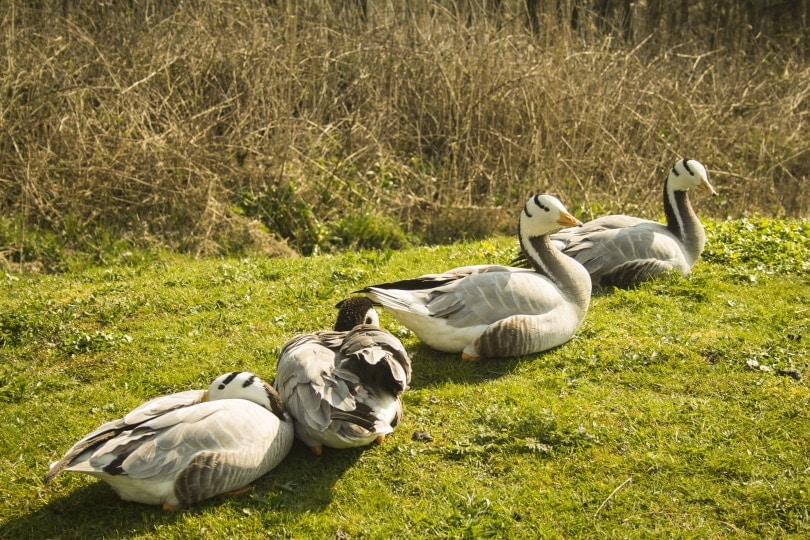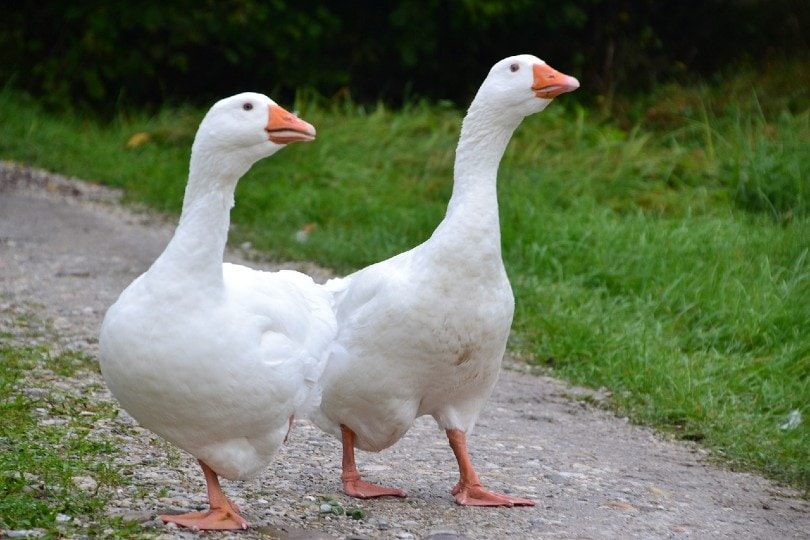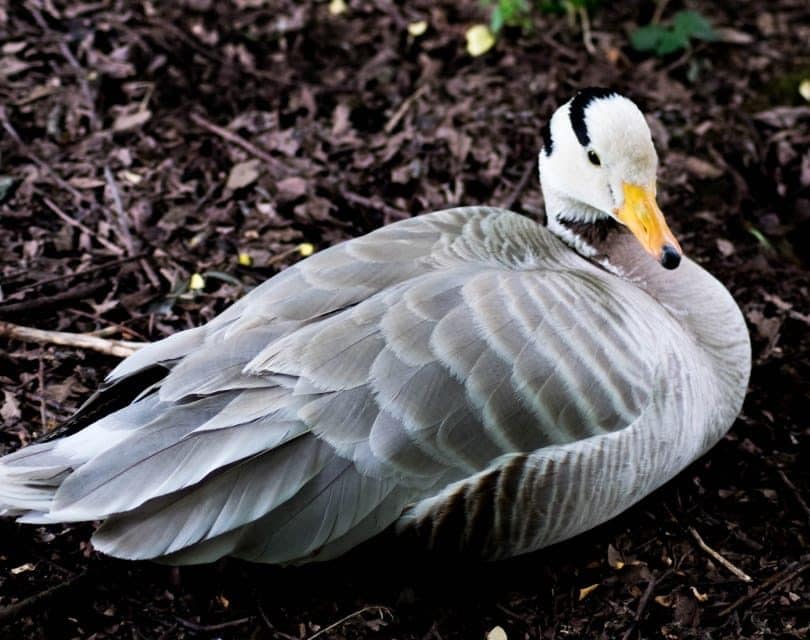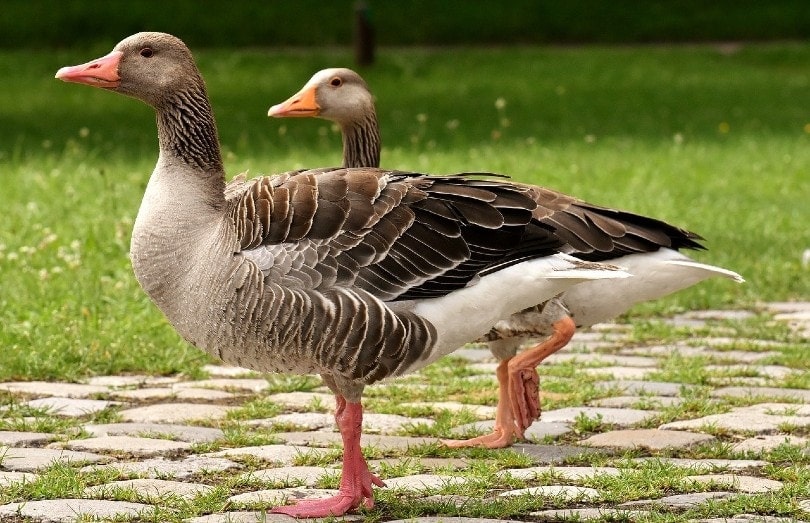Where Do Geese Sleep, & How Do They Sleep? (The Answer)
Last Updated on

Geese are known for having unusual sleeping habits: They sleep on water, on land, and even while flying! While almost all birds make nests, most only make nests to keep eggs and raise chicks, and this is true for geese too. Most birds sleep in tree branches or inside dense brush, but geese are far too large for this.
So, where exactly do geese sleep, in captivity and in the wild? The answer is not as simple as you might expect! Read on for the fascinating sleeping habits of wild and captive geese.

Where do geese sleep in the wild?
In the wild, geese spend most of their sleeping time on open water. This is far safer for them because they’re not as vulnerable to predators, and the water acts as an alarm system — any small disturbance nearby will quickly alert them. Only when geese are absolutely sure there is no threat from predators will they sleep on land.
Water protects geese from land predators like coyotes, and the vibrations in the water will keep them alerted to any predators lurking underneath the surface, like alligators. Eagles and hawks are not threats because they also sleep at night, so it’s easy to see why sleeping on the water is a good choice for geese.
Geese will also take advantage of small islands to nest and rest at times, which is safe from most predators. They typically sleep in large groups, whether on land, on water, or in the air, and take turns keeping a lookout for one another.

Sleeping with one eye open
Geese and many other birds use a technique called unihemispheric slow-wave sleep — this is a unique process of shutting down one half of their brain to get some sleep, while the other half stays awake to keep an eye out for threats.
This is also how it’s possible for geese to sleep while flying, as they employ the same strategy. A flock of geese will fly in a V formation with only the leader at the tip of the V remaining awake, while the rest get unihemispheric slow-wave sleep. The flock then rotates positions to give each bird a chance to rest. Geese also use this technique on the water, enabling them to stay on alert for potential predators.
Related Read: Do Geese Have Teeth? What You Need To Know!

Where do geese sleep in captivity?
In captivity, geese typically feel safer and more protected than they do in the wild, so they are not as fussy about where they sleep. Domestic geese are far more likely to sleep on land, even if there is water available. Your geese’s coop offers them plenty of safety and protection that they wouldn’t get in the wild, so they’ll generally opt for the more comfortable sleeping quarters!
Geese are also large and powerful animals, and if you live in a protected, fenced area, few animals are a threat to them — cats are no match for a goose! Large dogs can be an issue if they are not trained, though.
xMost domesticated geese are happy to sleep in a barn or garden shed and will even make their own way there at night. You may also find that they enjoy simply sleeping out in the open, huddled in a small group, and you’ll have to herd them indoors if there are potential predators in your area and you want them to be completely safe


Conclusion
Geese sleep almost anywhere they want to! Since wild geese sleep in large groups and use a unique sleeping method that enables them to be alert while sleeping, they can sleep on land, on water, and in the air. Water is the most popular option for them because it’s the safest from predators. In captivity, geese have few predators to worry about and will generally sleep where they feel the most comfortable.
Related read:
- Male vs Female Canada Goose: What’re The Differences? (with Pictures)
- What Do Geese Eat in the Wild & Domestically?
Featured Image Credit: Piqsels
About the Author Robert Sparks
Robert’s obsession with all things optical started early in life, when his optician father would bring home prototypes for Robert to play with. Nowadays, Robert is dedicated to helping others find the right optics for their needs. His hobbies include astronomy, astrophysics, and model building. Originally from Newark, NJ, he resides in Santa Fe, New Mexico, where the nighttime skies are filled with glittering stars.
Related Articles:
How to Clean a Refractor Telescope: Step-by-Step Guide
How to Clean a Telescope Eyepiece: Step-by-Step Guide
How to Clean a Rifle Scope: 8 Expert Tips
Monocular vs Telescope: Differences Explained (With Pictures)
What Is a Monocular Used For? 8 Common Functions
How to Clean a Telescope Mirror: 8 Expert Tips
Brightfield vs Phase Contrast Microscopy: The Differences Explained
SkyCamHD Drone Review: Pros, Cons, FAQ, & Verdict
